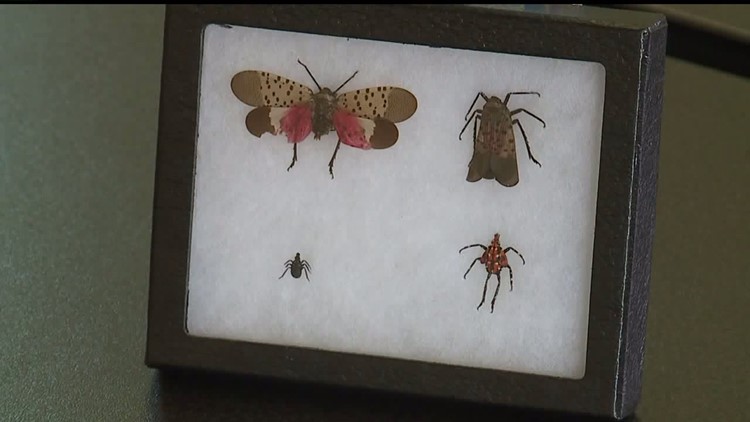A tough season for local vineyards could soon get tougher.
“My dad was the vineyard manager for 35-40 years, and he said it’s one of the worst growing seasons he’s seen in his whole time in pennsylvania growing grapes,” said Jonas Nissley, 3rd generation owner of Nissley Vineyards in Conoy Township, Lancaster County.
The heavy rain we saw all summer long, combined with a new threat, has local vineyard owners concerned.
“It seems to me like it’s only a matter of time until they pop up here,” said Nissley.
The Spotted Lanternfly is native to Asian countries, but has recently been discovered in Berks County.
The Pennsylvania Department of Agriculture says the bugs have the potential to wipe out not only the grapes, but destroy the entire vine as well.
“Of course [it was a concern.] We need the grapes to make the wine, so if the Spotted Lanternfly comes in and takes out the vine, it’s an issue for me," said Kyle Jones, winemaker at Nissley Vineyards.
It can take 3-4 years to repair a destroyed vine, which is time they simply don’t have if they want to keep up with demand.
That’s why employees at Nissley Vineyards are trying to nip this problem in the bud.
“We’ve also been cutting back their indigenous, or their preferred habitat, which is the lantis tree and some other things. We've tried to get rid of as much of that as possible just so it’s not a safe haven for them,” said Jones.
The Department of Agriculture wants Pennsylvanians to also keep an eye out for Spotted Lanternfly eggs, which can survive throughout the entire winter.
This time of year, the eggs will have a gray mud-like covering which can look dry and cracked overtime.
If you find eggs, the Department of Agriculture suggests scraping them off, double bagging them, and throwing them away.
Then, report it at this website- https://www.agriculture.pa.gov/Plants_Land_Water/PlantIndustry/Entomology/spotted_lanternfly/Pages/default.aspx
It’s inconvenient, Nissley says, but he says pests come with the territory of working at a vineyard.
“The challenge is that there's nothing you can do about it. You just have to take what you’re given. But that’s farming, I guess,” said Nissley.



